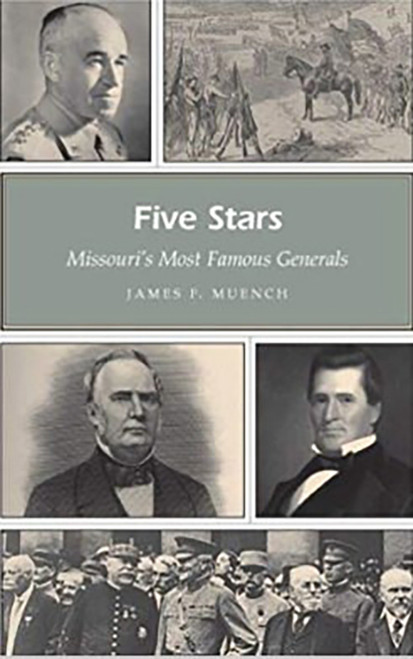James Milton Turner and the Promise of America: The Public Life of a Post-Civil War Black Leader by Gary R. Kremer & William E. Foley
This fascinating and well-researched biography provides an insightful portrayal of James Milton Turner’s public life. Anyone with interest in nineteenth-century American history, African-American history, or Missouri history is sure to find this study of great importance.
America had seemed to promise James Milton Turner and all other members of his race equal rights and equal opportunities after the Civil War. As this first book-length biography of Missouri’s most prominent nineteenth-century African-American political figure argues, Turner possessed a deep and abiding faith in America. The Civil War, he believed, had purged the land of its sins and allowed the country to realize what had always been its promise: the creation of a social and political environment in which merit, not race or any other accident of birth, mattered. Those beliefs led Turner to become a fierce advocate of black political and civil rights.
Born a slave, Turner gained his freedom when he was four years old and received his education in clandestine St. Louis schools. After briefly attending Oberlin College in Ohio, he worked as a porter in Missouri before becoming an aide to a Union officer at the advent of the Civil War. A self-taught lawyer, Turner served as secretary of the Missouri Equal Rights League from 1865 to 1867, traveling the state first as a spokesman for black suffrage and then as a representative of the State Superintendent of Education. Turner’s work earned him a statewide reputation, and he wielded power far out of proportion to Missouri’s relatively small black population.
In 1871, as a reward for Republican party service, President Ulysses S. Grant appointed Turner Minister Resident and Consul General to Liberia. Turner returned to America in the late 1870s and quickly joined a relief effort aimed at helping black refugees fleeing the Redeemed South. Subsequently, he aided former slaves of the Cherokee Nation in their attempt to secure full tribal rights, including a share of federal funds paid for land cessions. Nonetheless, Turner never regained the prominence he had enjoyed during Reconstruction, and, in the end, the promise of America failed Turner and African-Americans in general.
About the Authors
Gary R. Kremer is Executive Director of the State Historical Society of Missouri and adjunct professor of history at the University of Missouri in Columbia, MO. Dr. Kremer received his Ph.D. from American University in Washington, DC. He is the author and editor of numerous works, including Race and Meaning: The African American Experience in Missouri, Missouri's Black Heritage, Revised Edition, and George Washington Carver: In His Own Words.
William E. Foley is Professor of History at Central Missouri State University. He is the author of several books on the history of the heartland, including The Genesis of Missouri: From Wilderness Outpost to Statehood and A History of Missouri, Volume I: 1673-1820.
Product Specifications
Published by the University of Missouri Press, hardback, 1991. 264 pages. 12 illustrations.






